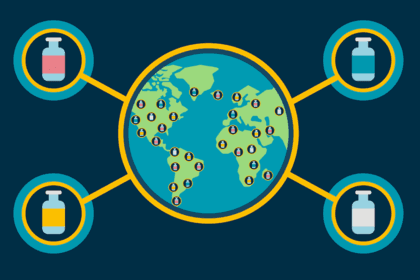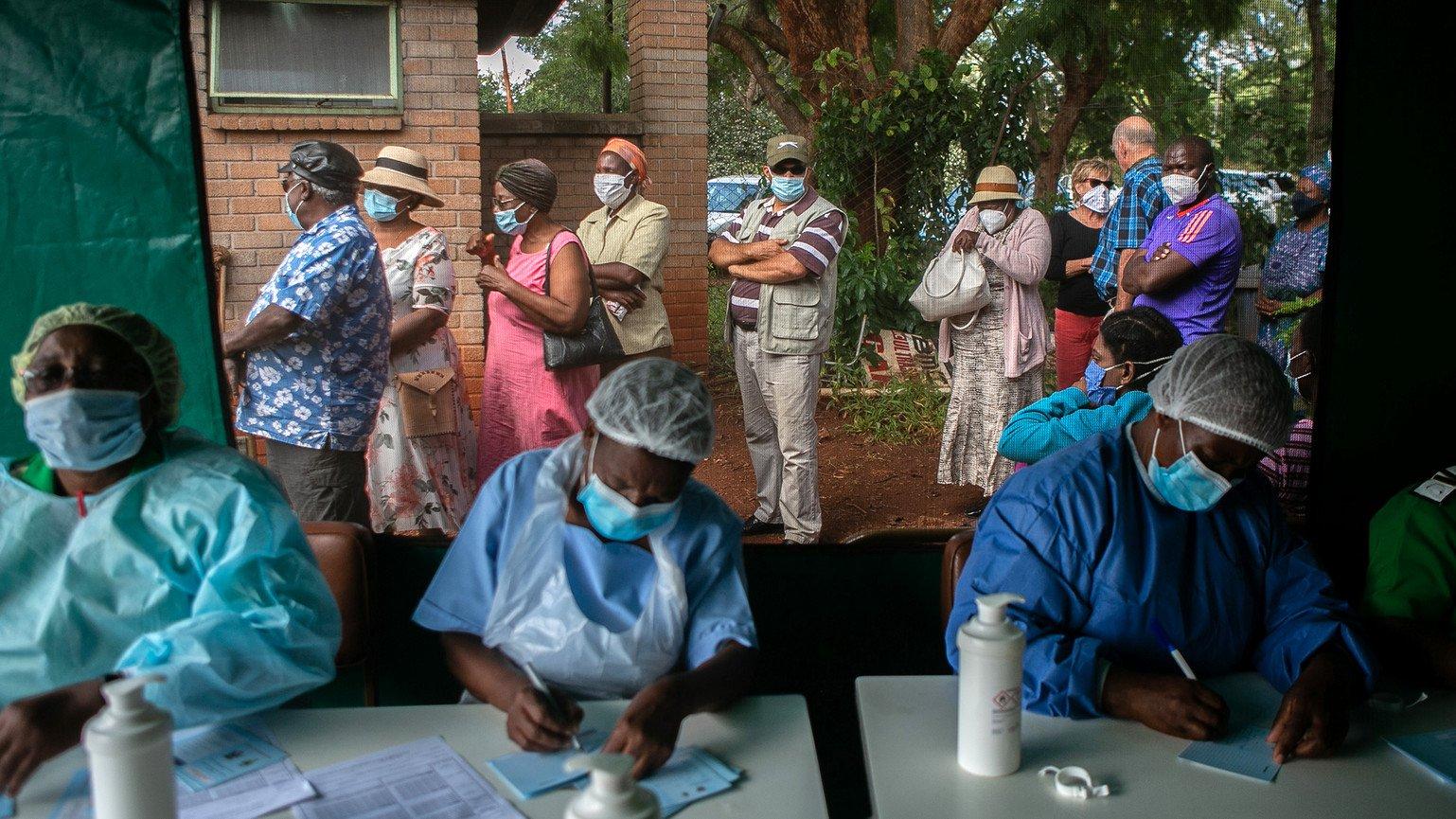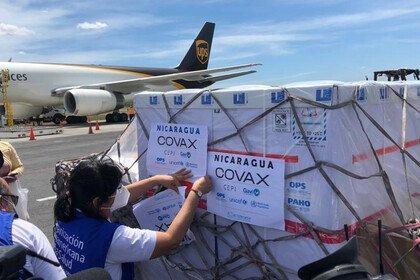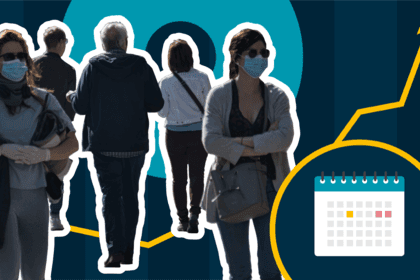
How should the world invest to prevent the next pandemic?
The profound and inequitable health and economic impacts of Covid-19 highlight flaws in the systems we have in place to prepare for and respond to infectious disease outbreaks. Beth Thompson explains how this also gives us a unique opportunity to think about how we could do things differently in future.

Tafadzwa Ufumeli / Getty Images
Thanks to huge international efforts and an unparalleled pace of innovation, we had tools to help test, treat and prevent Covid-19 less than a year into the pandemic.
Since the pandemic started, we have seen increased investment in research, procurement and distribution of Covid-19 tests, treatments and vaccines. The health and economic impact of investing in these tools has never been clearer. But the mechanisms to mobilise global funding for these crucial tools are limited and major gaps remain. As a result, on current projections most people in the world will not be vaccinated by the end of 2021.
Science has delivered, but often despite the system, not because of it. The risk of another pandemic is high. Our 21st century way of life – shaped by climate change, food and agriculture systems, international commerce and travel – enhances this risk. So while accelerating the response to Covid-19, we must strengthen the global health system to better prevent, prepare for and respond to the next pandemic.
Preparing for the next pandemic
At the start of the year, the Italian Government, as Chair of the G20, established an expert panel to recommend how the world should organise and mobilise financing for global pandemic prevention, preparedness and response. We’re delighted that Wellcome is supporting this work.
The panel will assess gaps in current financing systems and recommend how to raise financing on an efficient and equitable basis, including how we can best organise financial resources from public, private, philanthropic and international financial institutions. As well as new financing mechanisms, the panel will consider the right mix of incentives and governance for the system to work effectively.
Covid-19 provides us with an opportunity to do things better, and we shouldn’t miss it. In our work, we want to build on the hard lessons of the pandemic, understand things that have gone well and intensify our efforts in areas that remain challenging.
How the panel will work
The High Level Independent Panel on financing the global commons for pandemic preparedness and response is co-chaired by:
- Ngozi Okonjo-Iweala, Former Finance and Foreign Minister, Nigeria
- Tharman Shanmugaratnam, Former Deputy Prime Minister and Minister for Finance, Singapore
- Lawrence Summers, Former United States Treasury Secretary.
The co-chairs are joined by members who are experts in economics and finance. Two independent economics think tanks, Bruegel and the Center for Global Development, are undertaking analysis and writing as input into the panel’s deliberations and final report.
Wellcome and the US National Academy of Medicine are providing the panel’s Administrative Secretariat. Wellcome is also providing a financial contribution to these project partners to supplement their in-kind contributions. The panel will report to the G20 Finance Ministers and Central Bank Governors in July 2021.


